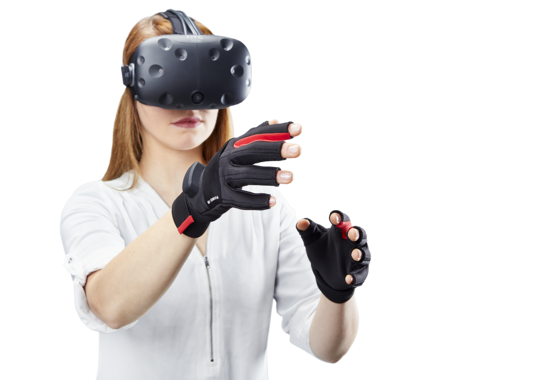VR revolutionizes education: immersive experiences, personalized learning, and practical training, unlocking limitless potential.
Introduction:
Virtual Reality (VR) has emerged as a groundbreaking technology with the potential to revolutionize the way we learn and train. By creating immersive and interactive experiences, VR has opened up new avenues for education, empowering learners and professionals to acquire knowledge and skills in unprecedented ways. In this blog, we delve into the transformative impact of virtual reality on education and training.
Enhanced Learning Experiences:
VR offers a unique opportunity to transform traditional learning methods into engaging and interactive experiences. Whether it's exploring ancient historical sites, taking a virtual field trip to distant lands, or simulating complex scientific experiments, VR immerses learners in a world where they can explore and interact with the subject matter, making learning more memorable and effective.
Personalized Learning:
With VR, education can become more personalized, catering to individual learning styles and paces. Virtual reality applications can adapt to the learner's preferences, allowing them to explore topics in-depth or review content at their own speed. This level of personalization fosters a deeper understanding of concepts and boosts overall learning outcomes.
Skill Development through Simulations:
In professional training, VR simulations have proven to be invaluable. From medical students practicing surgeries to aviation personnel honing their flying skills, VR-based simulations provide a safe and controlled environment for learners to develop critical skills without real-world risks. This enhances competence and confidence, ensuring better-prepared professionals.
Breaking Geographic Barriers:
One of the most significant advantages of VR in education is its ability to break geographic barriers. Learners from remote or disadvantaged areas can now access high-quality education and training resources that were previously inaccessible to them. VR enables a global network of learners, fostering inclusivity and equality in education.
Cost-Effective Training:
VR has the potential to save time and resources in training programs. In fields where practical experience is vital, such as engineering or construction, VR simulations can significantly reduce training costs while still providing valuable hands-on experience.
Empathy and Soft Skills Development:
VR can be a powerful tool for building empathy and developing essential soft skills. Simulations that put learners in different scenarios, such as conflict resolution or customer service, enable them to experience and practice their responses in realistic settings, ultimately enhancing interpersonal skills.
Future-Proofing Education:
As technology continues to evolve, embracing VR in education future-proofs learning methods. Students and professionals familiar with VR technology will be better equipped to adapt to a rapidly changing world, where virtual collaboration and remote work become increasingly prevalent.
The impact of virtual reality on education and training is transformative, promising a future where learners can explore, experience, and grow beyond the limitations of traditional classrooms. From enhanced learning experiences and personalized education to cost-effective training and global accessibility, VR has the potential to revolutionize the way we acquire knowledge and skills. As the technology continues to advance, the journey of exploring VR's impact on education is bound to unlock even more exciting possibilities and shape the future of learning.










